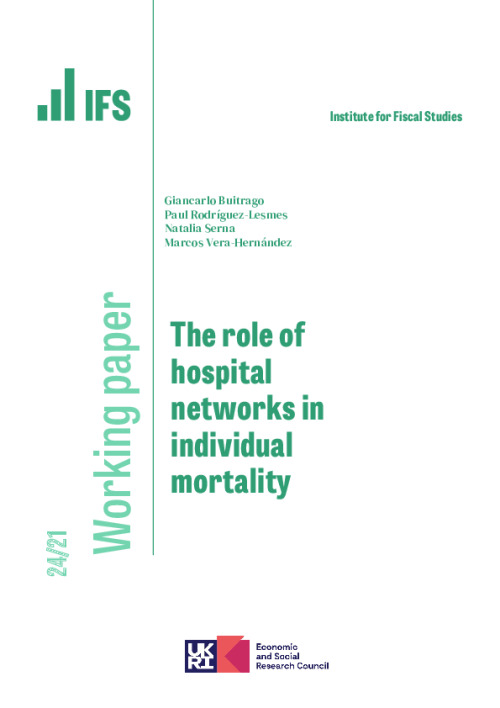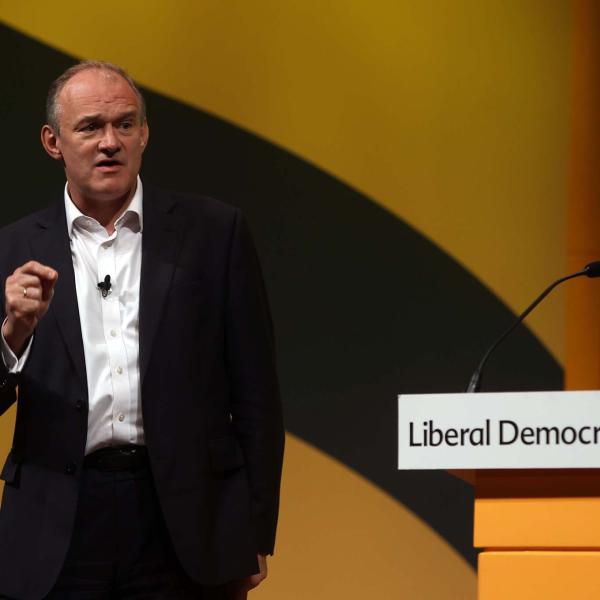Downloads

Download working paper here
PDF | 1.29 MB
Narrow hospital networks have proliferated in health systems with managed care. We investigate the causal effect of network breadth on mortality leveraging the termination of the largest health insurer in Colombia. The termination caused a substantial increase in mortality accompanied by reductions in network breadth among incumbent insurers. We estimate that broad-network insurers reduce mortality because they steer patients to higher-quality providers and reduce hospital congestion. Results imply that patients should be reassigned to incumbent insurers based on the overlap of their network with the terminated insurer, and that policies requiring minimum network coverage are needed to maintain patient health.
Authors

Associate Professor Universidad Nacional de Colombia

Paul Rodríguez-Lesmes
Assistant Professor Stanford University

Research Fellow University College London
Marcos is a Research Fellow at IFS, an Affiliate at the Rural Education Action Program and a Professor of Economics at the University College London.
Working Paper details
- DOI
- 10.1920/wp.ifs.2024.2124
- Publisher
- Institute for Fiscal Studies
Suggested citation
Buitrago, G et al. (2024). The role of hospital networks in individual mortality. 24/21. London: Institute for Fiscal Studies. Available at: https://ifs.org.uk/publications/role-hospital-networks-individual-mortality (accessed: 30 June 2024).
More from IFS
Understand this issue

If you can’t see it, you can’t be it: role models influence female junior doctors’ choice of medical specialty
24 April 2024

The NHS waiting list: when will it come down?
29 February 2024

Liberal Democrat manifesto: a reaction
10 June 2024
Policy analysis

How do the last five years measure up on levelling up?
19 June 2024

A response to the Conservatives’ proposals to reduce growth in the health-related benefits bill
8 June 2024

IFS response to Labour Party announcement on NHS waiting lists
28 May 2024
Academic research

Forced displacement, mental health, and child development: Evidence from Rohingya refugees
10 May 2024

A senior doctor like me: Gender match and occupational choice
24 April 2024

Targeting men, women or both to reduce child marriage
28 May 2024